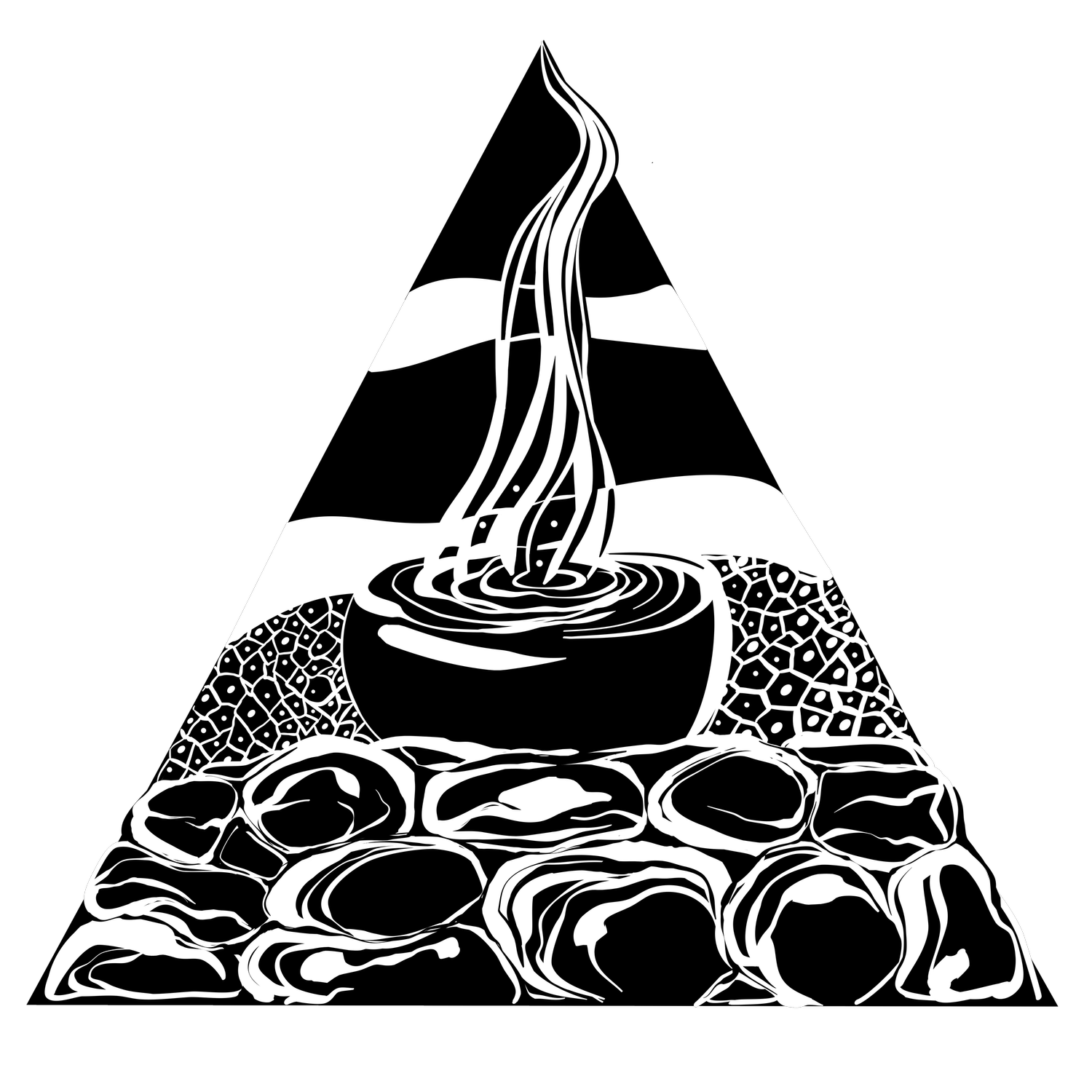September 16, 2020
Thinking differently, thinking freely
Fingers laced together as strong weathered hands rest comfortably on baggy jean shorts. Silver strands fall freely from the knot of hair swirled into a bun. He peers over wire-rimmed glasses as the morning sun casts an orange glow on his moustache and sideburns.
Uncle ʻImai Kalāhele is Hoʻoulu ʻĀina’s resident artist, poet, activist, singer, and philosopher. He grew up in Kalihi and was raised in a rooming house on Fort Street where kauhale-style (communal) living among predominantly Hawaiian families was the norm.
Each ʻohana had their own private room where they would huddle together to share stories and sleep. But the showers, toilets, and kitchen were considered communal spaces. “Yah I was never one of those who took at 20-minute long shit,” he laughs. “I used the bathroom and got the hell out of there!”
One of his most cherished memories was the pungent smell that emanated from the kitchen. Families prepared their evening meals of beef stew, chow fun, and chopped steak where sweet and savory scents would meld together, forming a beautiful fusion of delectable aromas.
“The community kitchen was a trip,” Uncle ʻĪmai says leaning back in a worn canvas chair. “It was one big room, and around three walls were kerosene stoves. Everybody used kerosene stoves back then, and using them was nothing more than working in one big lab.”
Living in a communal environment taught Uncle ʻĪmai the value of being respectful and mindful of everyone’s space. The only privacy families were afforded was a thin, single wall that separated their living quarters from their neighbors.
“As kids, we knew we was poor, but don’t get me wrong,” he says. “It wasn’t bad. We never had any trouble. And we never had any fights. For the most part, us kids had plenty fun.”
At a very early age, Uncle ʻĪmai realized he possessed incredible gifts. “The two things I knew I could do as a kid growing up was to draw and sing.” Aside from raising a family, painting, drawing, sculpting, playing guitar, and composing music has been his life work.
“Artists are storytellers, regardless of the media, whether you're a musician, a painter, a poet, a sculptor or whatever – basically what you're doing is telling a story.”
As a young artist, Uncle ʻĪmai would reflect on what his kuleana was to his community. Deep introspective thinking made him realize that as an artist he could share his belief system and cultural practices through his artwork.
“I mean I'm not a farmer so I don't feed anybody. I’m not a carpenter so I cannot build nobody one house. So what is it that I do, that's worth something? You know? I think having an opinion and voicing that opinion is important,” he chuckles. “I do think it’s important to think the opinion out first cuz sometimes get people who talk too fast without thinking.”
After living in Kalihi for most of his life, Uncle ʻĪmai recently moved to the west side of Oʻahu with his wife, Aunty Eunice. But day-after-day he and Aunty make the 45- minute trek (without traffic) to Hoʻoulu ʻĀina where Uncle has his art studio.
“When I look at Hoʻoulu ʻĀina, these are the kinds of places that give me hope,” he says with conviction. “These are the places that are turning out people to think differently. To think freely.”
A place where circles and natural rhythms are part of aloha ʻāina. Where moʻolelo and art is the thread that connects people and land. Where ancient ways are celebrated and stories link and encircle our community and our collective action.
That is why Uncle ʻĪmai is our ʻĀina Warrior. Fierce advocate for the Lāhui. Painter. Sculptor. Poet. Musician. Storyteller.


